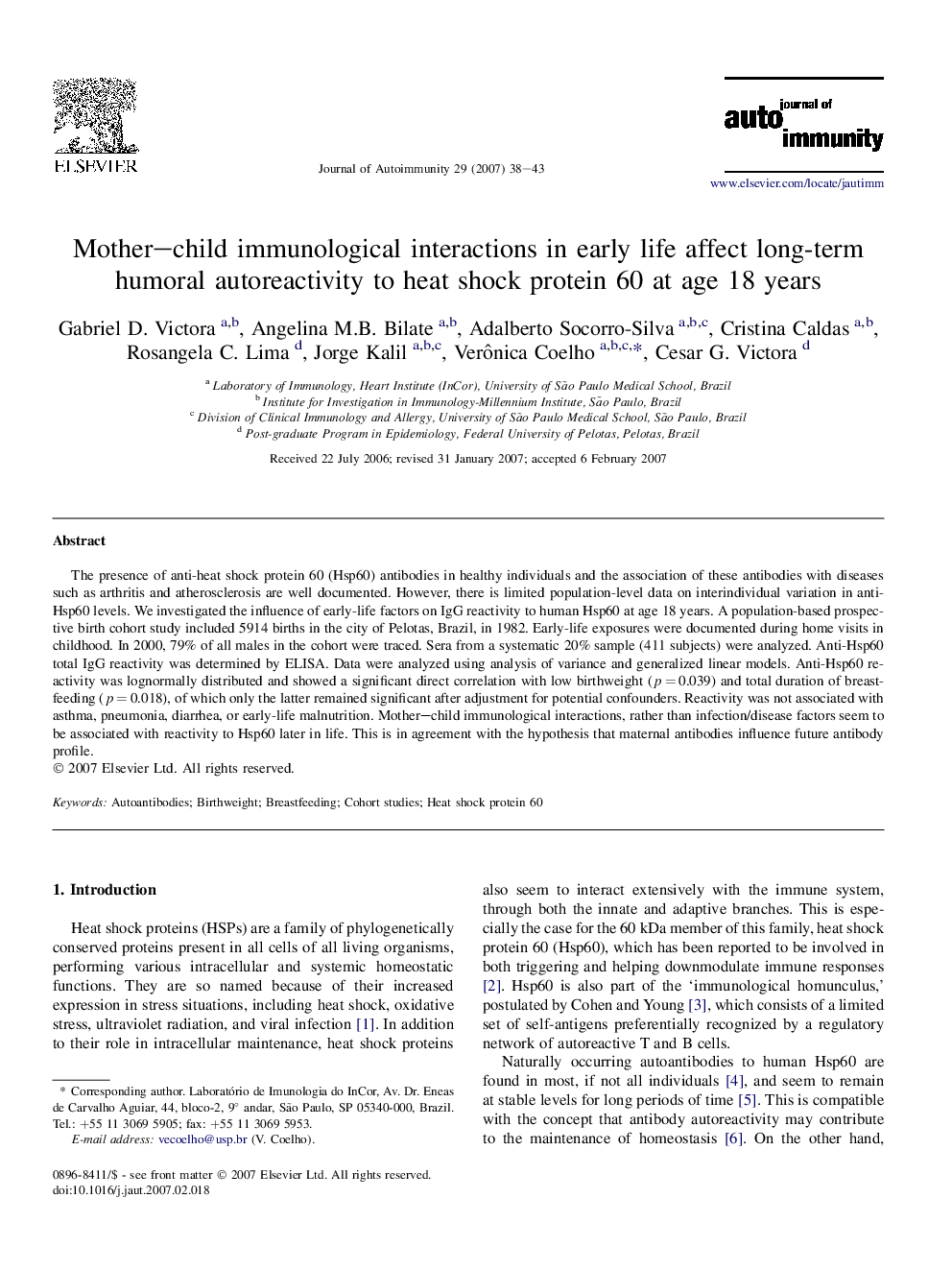| Article ID | Journal | Published Year | Pages | File Type |
|---|---|---|---|---|
| 3368413 | Journal of Autoimmunity | 2007 | 6 Pages |
Abstract
The presence of anti-heat shock protein 60 (Hsp60) antibodies in healthy individuals and the association of these antibodies with diseases such as arthritis and atherosclerosis are well documented. However, there is limited population-level data on interindividual variation in anti-Hsp60 levels. We investigated the influence of early-life factors on IgG reactivity to human Hsp60 at age 18 years. A population-based prospective birth cohort study included 5914 births in the city of Pelotas, Brazil, in 1982. Early-life exposures were documented during home visits in childhood. In 2000, 79% of all males in the cohort were traced. Sera from a systematic 20% sample (411 subjects) were analyzed. Anti-Hsp60 total IgG reactivity was determined by ELISA. Data were analyzed using analysis of variance and generalized linear models. Anti-Hsp60 reactivity was lognormally distributed and showed a significant direct correlation with low birthweight (p = 0.039) and total duration of breastfeeding (p = 0.018), of which only the latter remained significant after adjustment for potential confounders. Reactivity was not associated with asthma, pneumonia, diarrhea, or early-life malnutrition. Mother-child immunological interactions, rather than infection/disease factors seem to be associated with reactivity to Hsp60 later in life. This is in agreement with the hypothesis that maternal antibodies influence future antibody profile.
Related Topics
Life Sciences
Immunology and Microbiology
Immunology
Authors
Gabriel D. Victora, Angelina M.B. Bilate, Adalberto Socorro-Silva, Cristina Caldas, Rosangela C. Lima, Jorge Kalil, Verônica Coelho, Cesar G. Victora,
